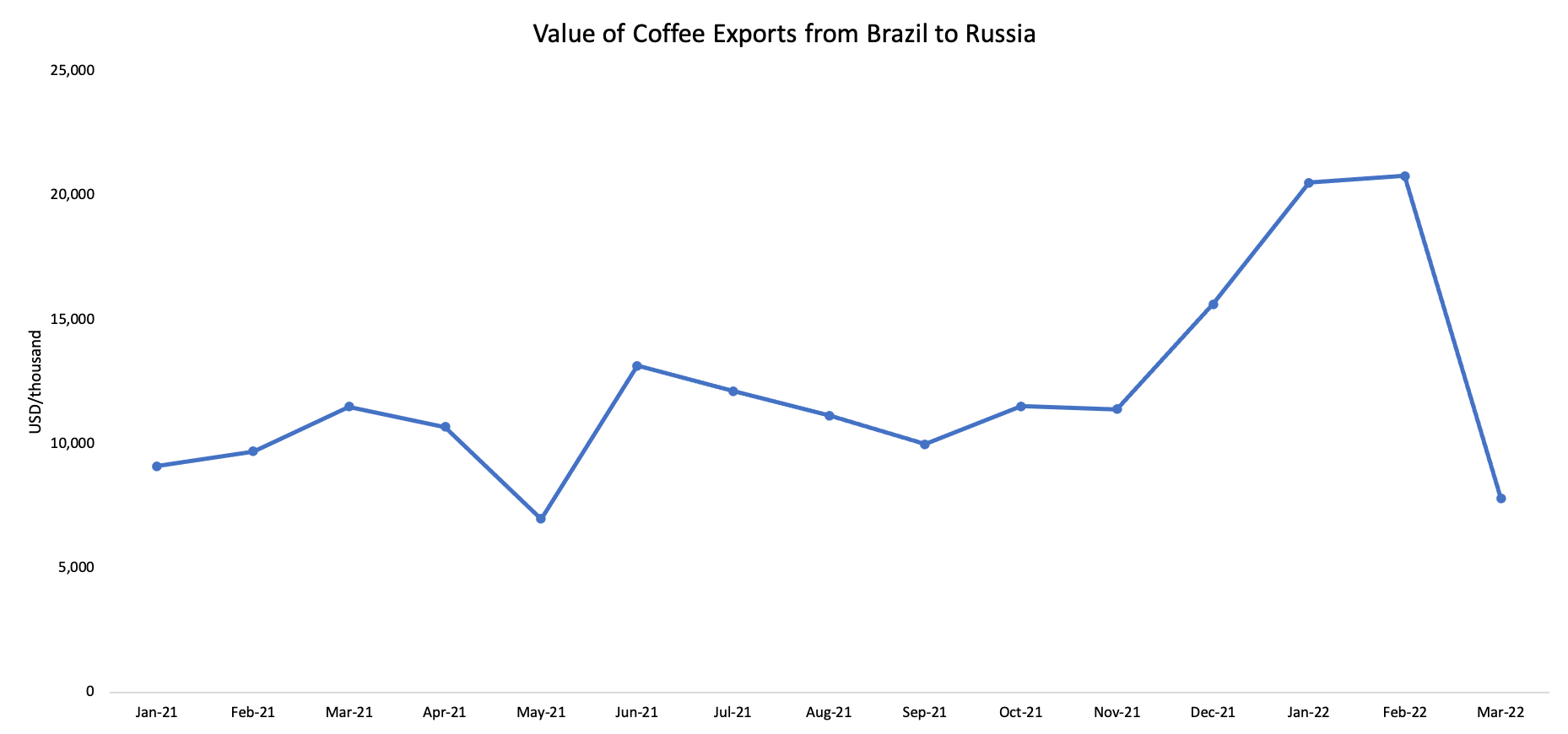Brazil’s Coffee Exports Fall as Shipments to Russia Reduce

After a tough coffee growing season, it was anticipated that coffee exports from Brazil would plummet in the upcoming months. According to a report released by the Council of Coffee Exporters of Brazil (CECAFE), Brazil exported 3.62 million coffee bags of 60 kg in March 2022, which is a YoY decline of 6%. However, the revenue from coffee exports rose by 69.3% to reach USD 865.1 million during the same month. Higher revenue came from an increase in Brazil’s Arabica exports, which fetched higher prices in global markets compared to other varieties. Arabica was the most exported between January and March 2022, making up 9.25 million bags, or 87.3% of the total coffee exports, followed by soluble coffee, accounting for 9.2% of the total exports. The remaining exports consisted of robusta and roasted and ground products, which together had a share of less than 5%.
The United States remained the main destination for Brazilian coffee in the first quarter of 2022, importing 2.103 million bags, a share of 19.8% of Brazil’s exports. Brazil's coffee was also popular in Germany, Italy, Japan, Belgium, the United Kingdom, Turkey, and Russia. Brazil recorded a significant decline in coffee shipments to Russia this year, which is among the largest buyers of coffee in the world. According to data from the International Coffee Organization (ICO), in March 2022, Russia imported only 33,855 bags of coffee from Brazil. Through this, Brazil generated a revenue of USD 7.8 million, which is a YoY decline of 73% in volume and 52% in value. This period recorded a fall in exports of both Arabica and Robusta varieties.

Source: ITC Trade Map and International Coffee Organization.
The decline comes after tensions between Russia and Ukraine, which have resulted in many trade sanctions as well as limitations in logistics and modes of transactions . Furthermore, the depreciation of the Russian Ruble against the dollar since has increased the cost of exports and reduced demand for coffee. To top it all off, observations demonstrate that Russian consumers are tightening their belts by limiting their visits to restaurants and cafes in anticipation of higher price inflation in the coming months. All the factors together resulted in lower export of Brazilian coffee to Russia. The outlook for this particular market remains highly uncertain with no signs of improvement and expectations that the rampant food price inflation may have a long-term impact on the purchasing power of the people.


